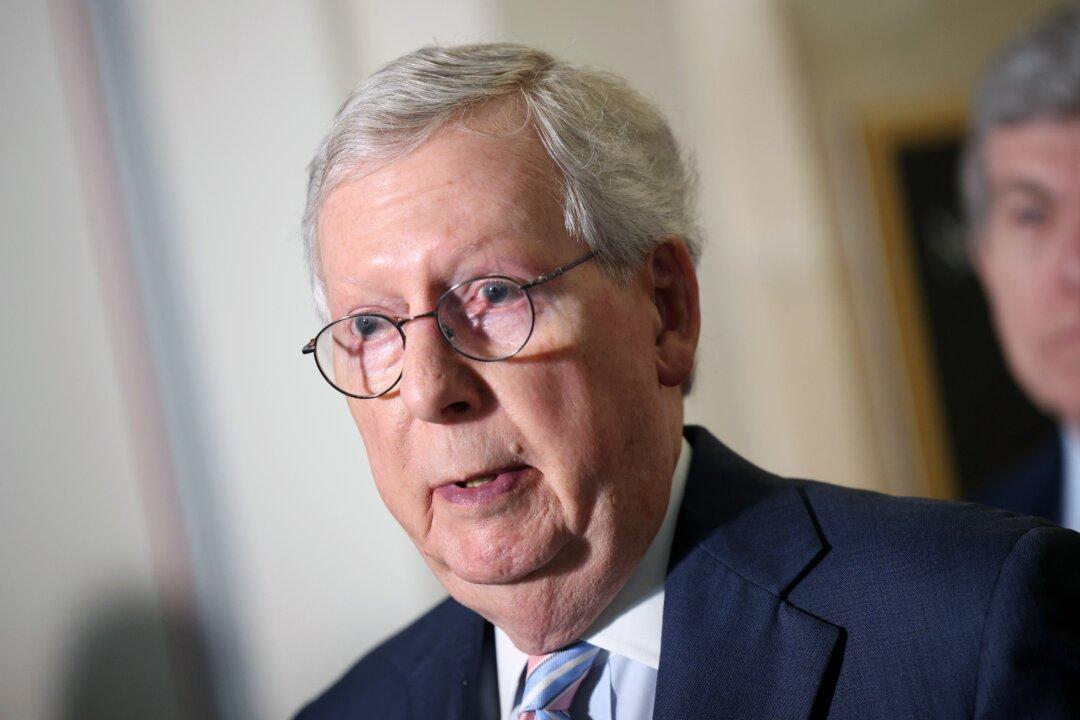Senate Minority Leader Mitch McConnell (R-Ky.) predicted on Tuesday that no Republicans would back a bill to raise the federal debt ceiling, and instead called for Democrats to include such a measure in a reconciliation package and pass it in what would almost certainly be a party-line vote.
“I can’t imagine a single Republican in this environment that we’re in now–this free-for-all for taxes and spending—to vote to raise the debt limit,” McConnell told Punchbowl News in a Tuesday interview. “I think the answer is they need to put it in the reconciliation bill.”





